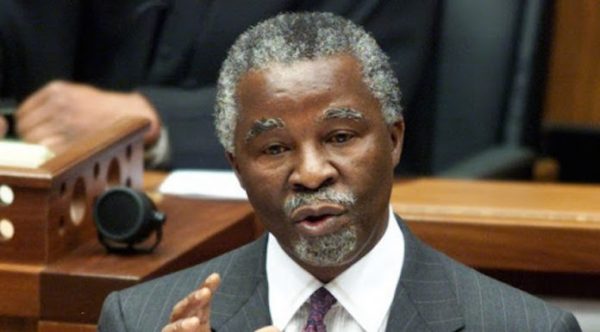- Malami seeks travel ban on corrupt elements
- Fowler: 114 Abuja properties may be confiscated
Chairman, African Union High Level Panel on Illicit Financial Flow (IFF) from Africa, Mr. Thabo Mbeki, yesterday lamented that the continent loses about $80 billion annually to illicit financial out-flows and called for a united response to put an end to it.
This is as the Attorney General of the Federation (AGF), Mr. Abubakar Malami, said an international collaboration was urgently needed to restrict the movement of “corrupt elements” involved in IFF by denying them travel visas as well as restricting them from investing their proceeds of crime anywhere in the world.
He said such persons should not be allowed to benefit from stolen funds even when they are recovered.
His submission came on a day the Executive Chairman, Federal Inland Revenue Service (FIRS), Mr. Babatunde Fowler, said about 114 properties in Abuja will soon be referred to the AGF for necessary action following denials by their purported owners that they own the properties.

The former South African president, the AGF and FIRS boss- all spoke at an inter-ministerial meeting of the panel to appraise members’ commitment to curtailing the menace of IFF.
Mbeki said the AU needed to act on the matter to retain resources in the continent and not just highlighting the problem.
He said,”Nigeria is very important in this regard because the matter is being taken up very consistently and very openly by the government of Nigeria including the president.
“We want to be able to produce a report like that even to inspire the other African countries to do the same because it’s only that way we are able to reduce these outflow.
“It’s because of the practical actions we take not the speeches we make.”
He said, “We’ve not had very good response from the member states of AU about what they are doing to implement decisions that they took themselves in January 2015.
“The overwhelming majority of the government in the continent are in principle, very keen implementing these recommendations to stop these illicit financial outflow because it’s a very practical matter.
“If we are able to retain the resources within the continent, then we are better able to address our development challenges- and everybody recognises this.”
Also speaking at the event, Malami said an urgent international collaboration was required to punish offenders.
He said, “International collaboration is needed to make it difficult for corrupt elements to succeed: how do we do that- to ensure at the end of the day that we make it difficult for corrupt elements to take benefit of the proceeds of corruption and make it difficult for corrupt elements to move freely and that’s makes perhaps a mutual and international collaboration in terms of imposition or restriction of visas or restriction of investments relating to illicit financial flow or proceeds of corruption.”
According to him, “We need international collaboration now much more than any other time before to ensure corrupt elements do not benefit from the illicit funds that are said to have been taken out of our continent.
“By ensuring that those that are responsible for moving out these proceeds out of the African continent do not benefit from it by way of collaborating by ensuring that at the end of the day, we make movement of persons associated with corruption and making it equally difficult for them to benefit from the proceeds of crime.”
He said, “We cannot be shouting over illicit financial flow and at the same time allowing the beneficiaries of these corrupt practices benefit thereof.
“We must restrict their movement; we must deny them access to these funds and work together to make the repatriation of these funds when the need arises as easy as possible.”
However, the FIRS boss, Fowler, who canvassed for stiffer laws and regulation for IFF offenders, also recommended that as in drug related issues- assets from IFF should be forfeited to government to serve as deterrence.
On the properties to be handed over to government, Fowler said,” These are properties owned by corporate organisations, which are not registered to pay tax.
“About 672 of them…114 have confirmed that they do not own those properties.
“But the organisation responsible for issuing out those properties confirmed that those names do own these properties.
“So, we have 114 properties that we will be referring to the Honourable Attorney General very shortly to decide what happens to them as the owners they are registered to have claimed they do not own them.
“We also concluded the exercises in Lagos, we have about 5,000 notices served right now and we’ve received responses from 1,346 and we now have 610 that are now filing their tax returns and those that have paid are 189.
“The main sectors of industries that are involved in IFF and under remittance and non remittance of taxes are multinationals, financial institutions and oil and gas companies.
“Those three sectors alone account to close to 70 percent of the un remitted taxes.”
 MMS PLUS NG – Maritime, Aviation, Business, Oil and Gas News Online Newspaper with coverage in Maritime, Oil and Gas, Aviation, Power and Energy as well as Financial News
MMS PLUS NG – Maritime, Aviation, Business, Oil and Gas News Online Newspaper with coverage in Maritime, Oil and Gas, Aviation, Power and Energy as well as Financial News










